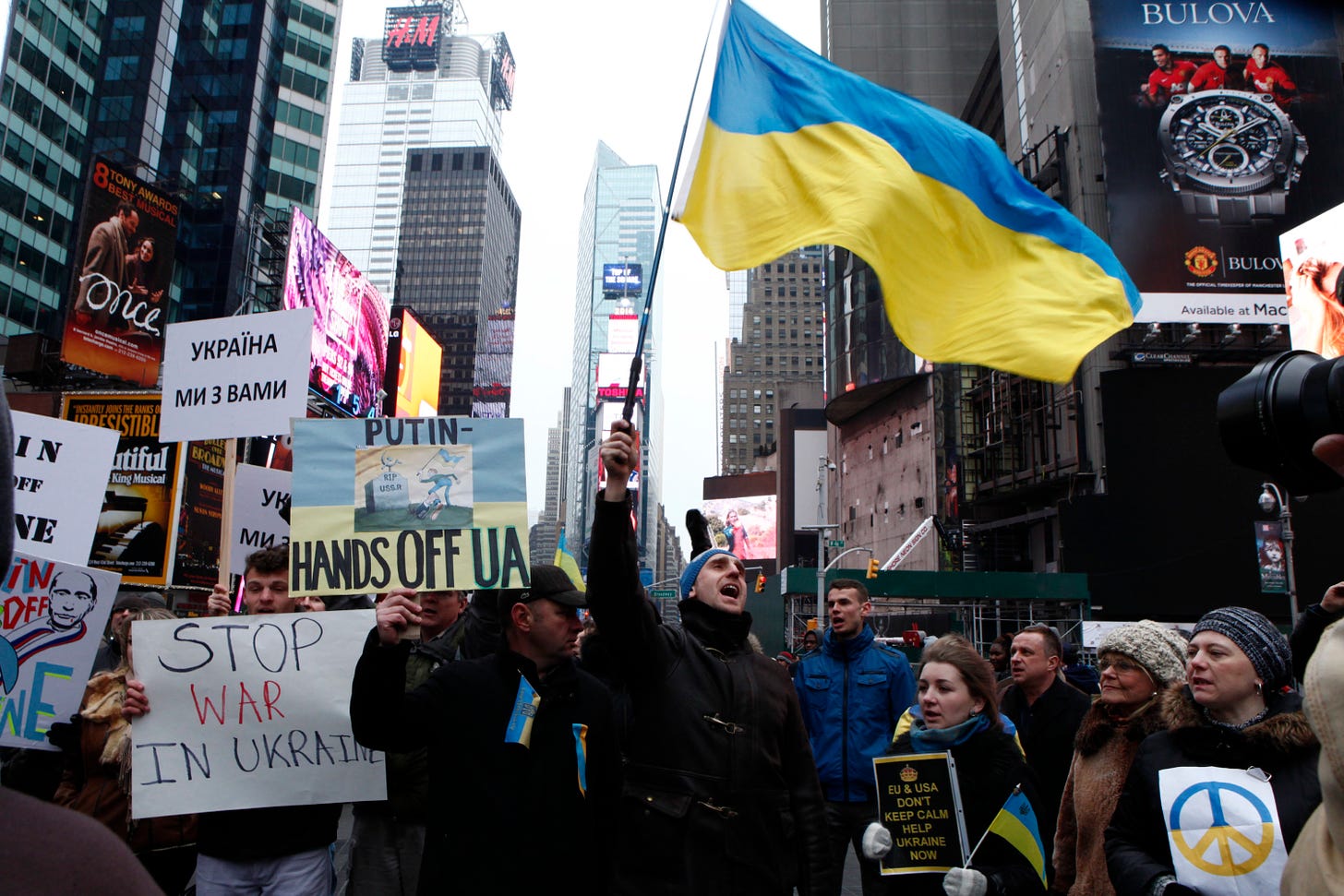Actually, Giving Aid to Ukraine Is Putting America First

Former Congressman Sean Duffy decided to beclown himself earlier this week by questioning the patriotism of a decorated military officer. What needs to be said about that despicable demonstration of hackery has been said.
But let’s pause for a moment to consider the merits of Duffy’s policy argument: “Are you saying that by giving this money to the Ukraine that absolutely the money is going to secure American national defense against Russia?” Duffy asked. “I don’t believe that.”
To be “absolutely” sure of the impact of an action requires knowledge of the future. That’s what Hayek was talking about when he mentioned the Knowledge Gap in Fatal Conceit. When making a decision, everybody acts to the best of their abilities, while understanding that events of the future haven’t unfolded, and what one doesn’t know about might lead to an unpredicted outcome.
So let us stipulate that, as a philosophical matter, that no one can be 100 percent sure that aid money given to Ukraine will secure American national defense against Russia.
But reasonable people can be 99.999999999 percent sure that it will lead us in that direction. Here’s why.
In 2014, Ukraine had a revolution that led to a civil war. Taking advantage of the situation, Russia’s Vladimir Putin decided to provide support for the separatist forces in the war and annexed Crimea from Ukraine through military force. President Obama’s lack of response angered virtually every Republican in Congress and many Democrats. The list of people who believed Obama had made a grave mistake included Sean Duffy, who thought that the annexation of Crimea, among other shortcomings, merited President Obama giving back his Nobel Peace Prize. The Crimean adventure came only a few years after Putin had invaded and occupied Georgia—another conflict that remains as yet unresolved.
As a result of the above violations of international norms, the United States imposed many sanctions on Russia. Before the 2008 recession, Russia’s economic growth averaged in the high single digits. Afterward, the Russian economy was recovering with 4 and 5 percent annual growth rates. The sanctions, along with Russia’s military adventurism in Syria and Ukraine, have crippled the country’s economy. The growth rate now averages at zero, occasionally going negative.
When you have your boot on your enemy’s neck, you push harder. Which is why it is in America’s national interest to support Ukraine.
Supporting Ukraine helps protect the international order that the United States has established and protected since 1945 and benefits from more than any other country.
It forces Russia to spend more money in Ukraine. Every ruble Putin spends in Ukraine is a ruble not spent advancing Russian interests—in the Middle East, in Eastern Europe, in South America. It’s a ruble that can’t be spent modernizing Russia’s nuclear arsenal or spreading disinformation or interfering in U.S. elections.
And by raising the cost of Russian aggression, we also weaken the Putin regime’s popular support. In recent years Russia has been forced to increase the retirement age because of its financial problems. These increases have angered the Russian people, not without reason. Currently, the life expectancy for a Russian man is 66.5; last year Putin raised the retirement age for men to 65. Enjoy your golden years, comrade!
This popular discontent sometimes turns into protests that Putin has to suppress, further weakening his legitimacy.
All of which is in America’s national interest.
There is also value in decreasing Russia’s prospects for future invasions. Estonia, Latvia, and Lithuania are all former Soviet republics, and Putin has a vision of rebuilding the Soviet empire. That’s what his interventions in Ukraine and Georgia—and attempts to turn other former Soviet republics into client states—are about.
Putin’s challenge is that the aforementioned Baltic states are all NATO members, and because the Senate has ratified the North Atlantic Treaty, it is the United States law to defend NATO members, including the Baltic states, against foreign invasion.
Don’t take my word for it. At the top of the National Security Strategy sits the signature of President Donald J. Trump. And according to that document:
The United States will deepen collaboration with our European allies and partners to confront forces threatening to undermine our common values, security interests, and shared vision. The United States and Europe will work together to counter Russian subversion and aggression…. We will continue to advance our shared principles and interests in international forums.
So the answer to Duffy’s question is: Yes. The aid we give to assist Ukraine with helps America’s national security.
America first, baby.



